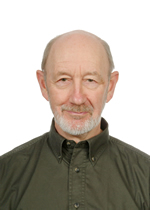Archived Content from Conference Held in May 2007
Home | Themes | Workshops | Schedule | Registration | Location & Accommodations
Bridging Contexts, Making connections
Featured Speaker
A Functional Linguistic View of Formative Classroom Assessment of Learning through Language |
|
Bernard Mohan, University of British Columbia |
Abstract
Summative assessment (‘assessment of learning’) is generally used to assign a grade to a student’s work. Formative assessment (‘assessment for learning’) is generally used to help a student learn. Formative classroom assessment is becoming increasingly recognised as a vitally strategic area of research and policy, because teachers and students communicate immediately about learning. Its local, intuitively co-constructed, contextual and textual qualities raise conceptual and methodological issues which go considerably beyond the theories and practices of established language assessment research.
“… language is not only the primary means by which a person learns but also the primary evidence we have for judging what that person has learned…” [my italics] (Halliday, 1988:1). Yet established language assessment research fails to recognise this. In the US, content-based language learning for ESL learners is mandated policy, but, quite remarkably, content-based language assessment is largely absent both in practice and in theory.
We see discourse functionally as a construct of meaning and wording (i.e. of ‘content’ and language), and we will argue that good quality formative assessment requires the discourse evaluation of students’ reasoned, informed and principled choices. We will explore: how teachers and students can functionally co-construct formative evaluations which address both meaning and wording in text (Mohan & Beckett, 2003); how they can support the processes of student decision-making leading to student answers (Leung & Mohan, 2004); how they can functionally relate formative tasks and subject matter ‘intertextually’ (Mohan & Slater, 2006); and how teachers can provide appropriate contexts for relating learning language, learning about language and learning through language (Mohan & Slater, 2005).
Implications for teacher action research include observing these intuitive formative assessment practices in classroom data, exploring teachers’ and learners’ espoused theories and theories-in-action, and consciously constructing quality formative classroom assessment.
 Bernard
Mohan
Bernard
Mohan
Chair, North
American Systemic Functional Linguistics Association (ISFLA)
Professor Emeritus, Department of Language and Literacy University of British Columbia
Vancouver B.C.,
Canada
Bernard Mohan has worked and taught at universities in Britain, the United States and Canada. His doctorate is in functional linguistics, he has taught in the measurement and evaluation section of an Educational Psychology department, and he is an Emeritus Professor in The Department of Language and Literacy at the University of British Columbia. He is Chair of the North American Systemic Functional Linguistics Association (ISFLA). He has a long-standing interest in the themes of language as a medium of learning, and the relation of language and meaning (i.e., language and content) in first and second language learning, and has explored their significance in classroom research. He believes that these themes are so much a part of our students' lives that they are usually taken for granted and it is often only when we consider challenging issues like assessment that the complexity of these themes becomes apparent, and we can see the importance they can have in learners' lives.


